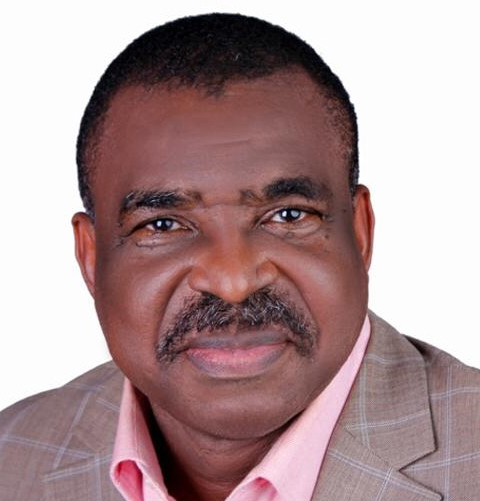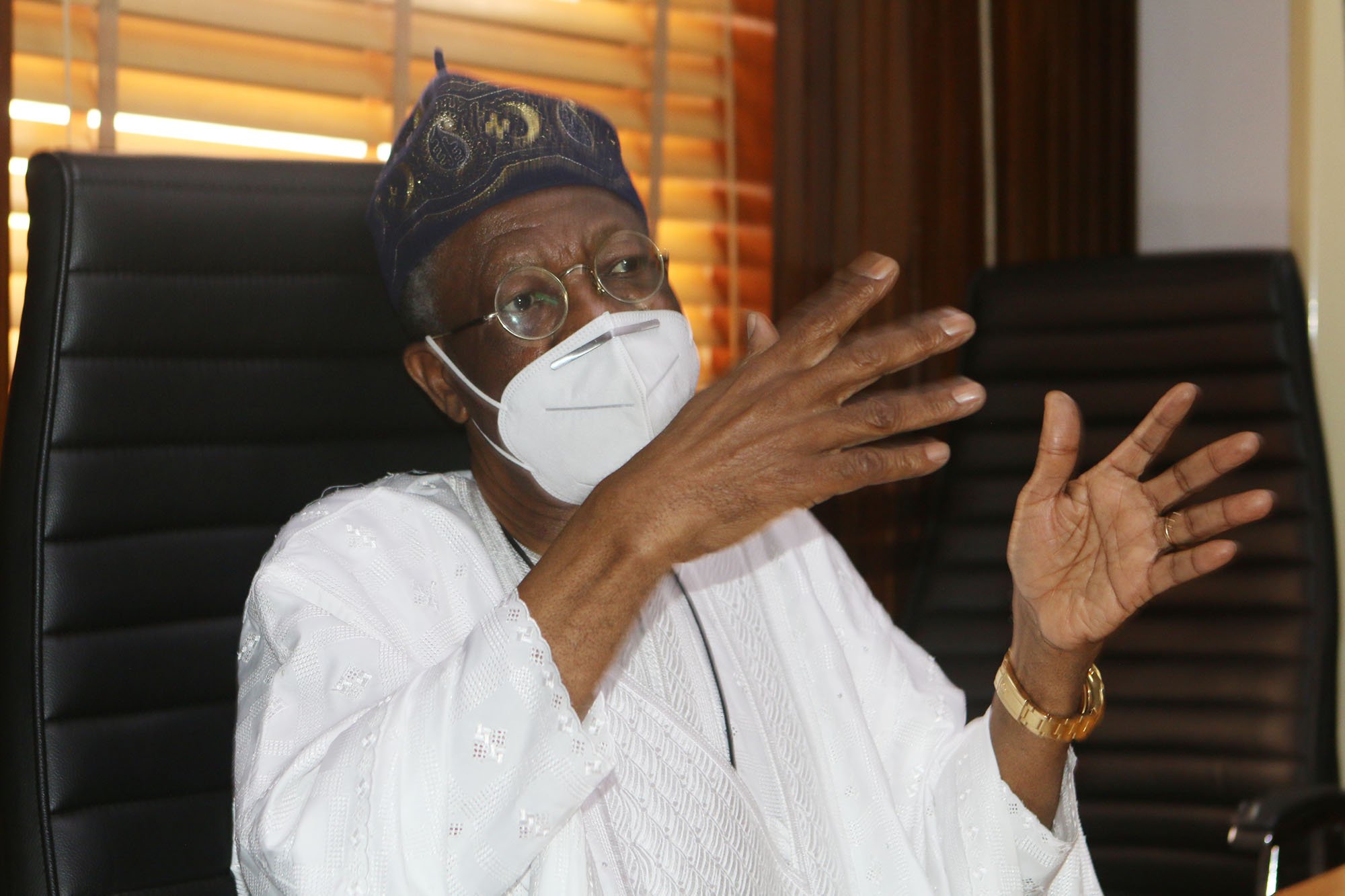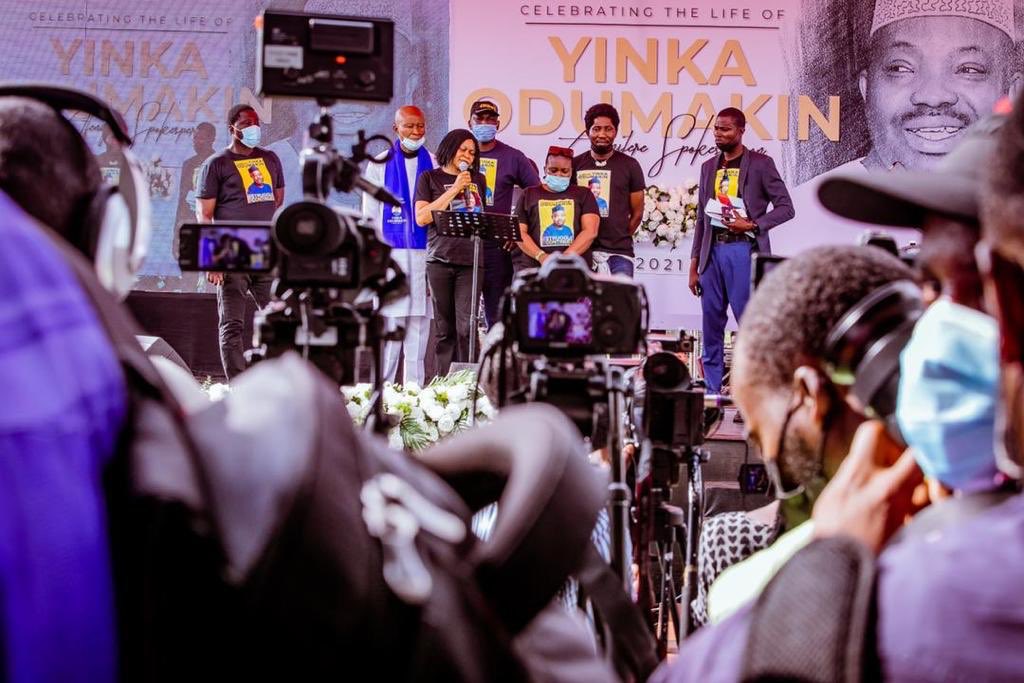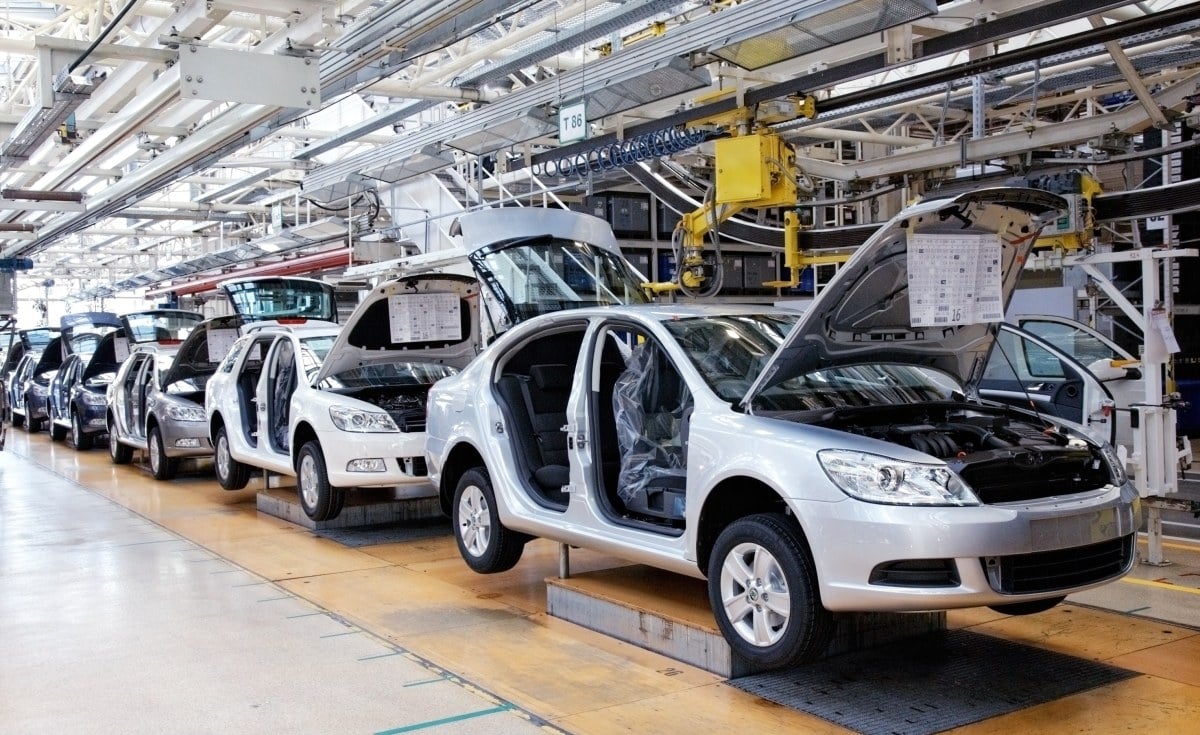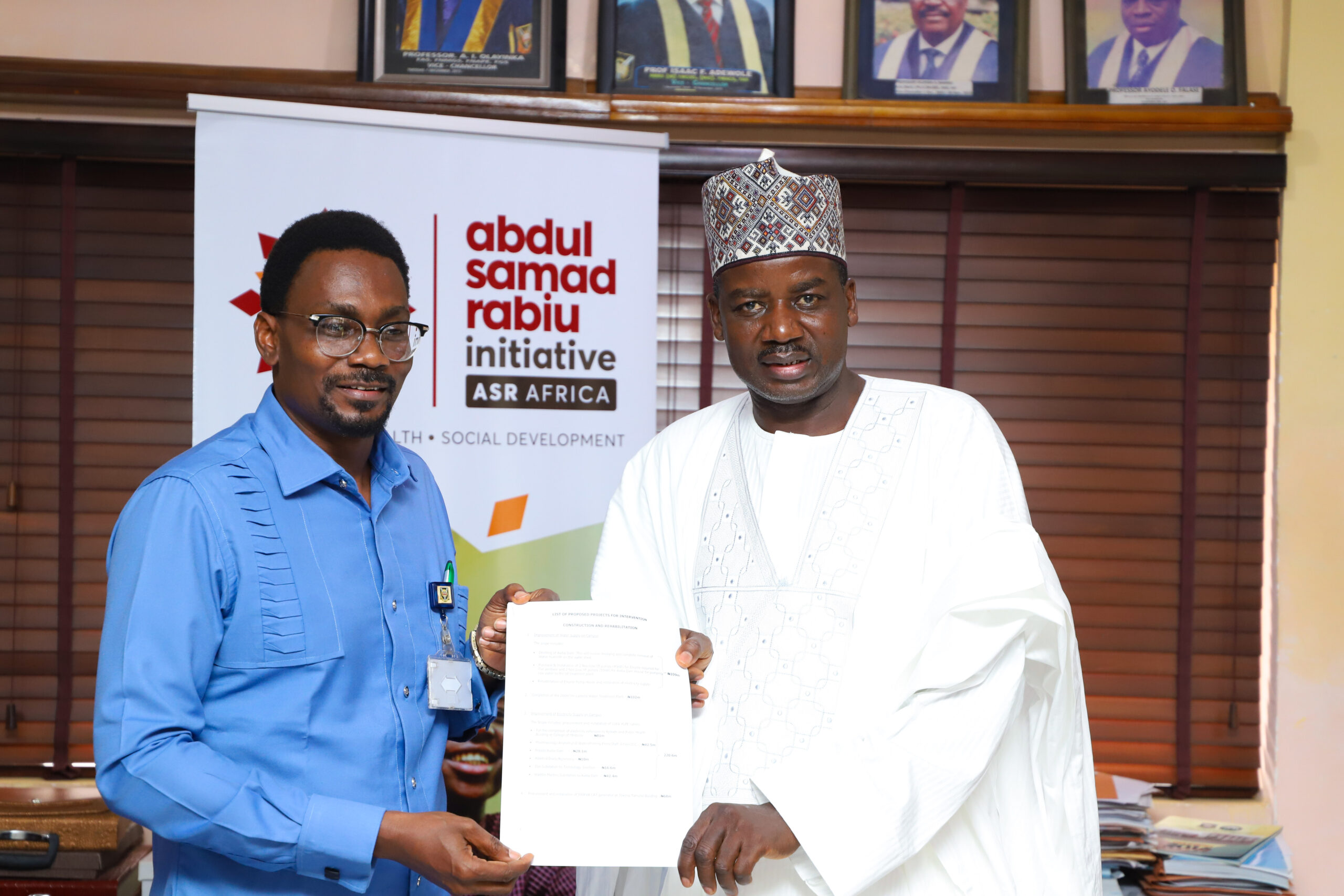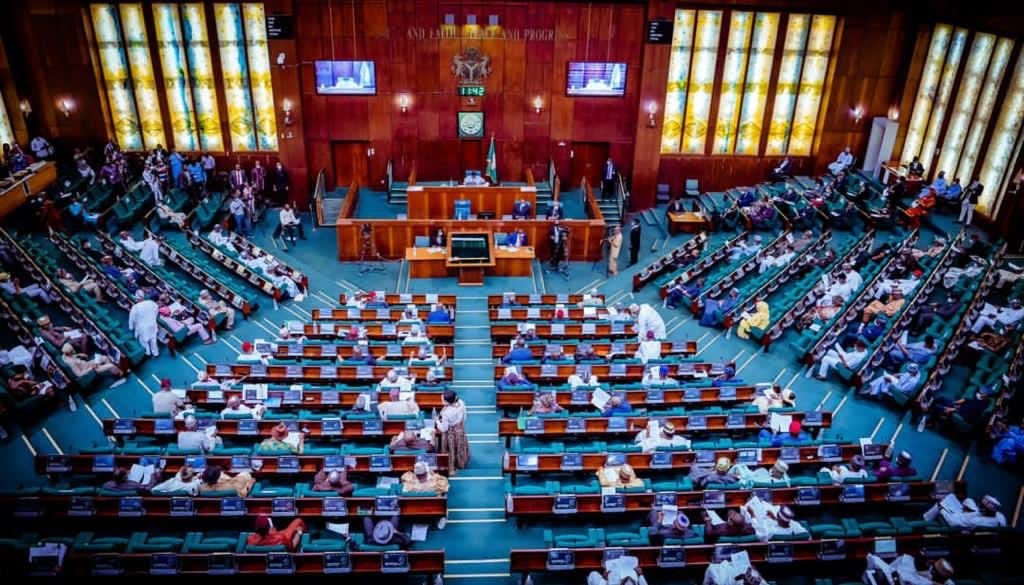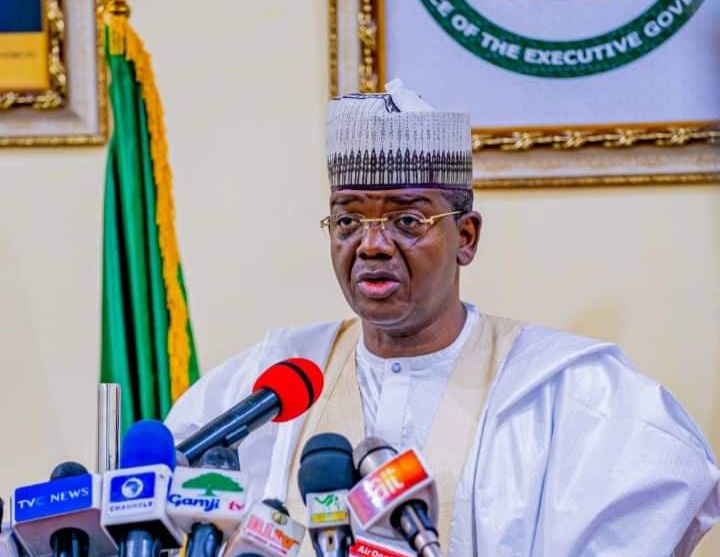While trying to deflect the allegation by Nigerians, especially the youths and members of the main opposition party, PDP that the choice of Ghana as opposed to Nigeria for Twitter head office, was reflective of the leadership failure in our country, which is underpinned by the ineptitude of the incumbent government, evidenced by the horrendous state of insecurity in the country, and the disdain for civil liberties by the authorities, particularly with respect to freedom of speech; the information minister and media assistant to the president in their characteristic manner of defending the indefensible, choose to shield government while disparaging Nigerians and Twitter.
Instead of owning up to the fact that Nigeria is teetering on the brinks and indeed in a low steam internal war, even as it is fast becoming a basket case, then dwell on what is being done to remedy the situation if there are such plans, the minister chooses to attack fellow citizens and the media, while the president’s spokesman lambasted Twitter and parodied Ghana for what is clearly an embarrassment to our country.
Before now, it was ‘normal’ for the current ruling party to blame the former ruling party, PDP for all the calamities that have befallen our country even six (6) years after it took over the reins of power in Aso Rock Villa.
But a critical mass of Nigerians is currently resolving to make it clear to the APC that they would no longer accept the subterfuge of pulling the-wool-over-their-eyes. As such they are demanding that the ruling party take responsibility for the economic, sociopolitical as well as ethnoreligious quagmire that is now practically and systematically plaguing and decimating the country.
Advertisement
The least that was expected from the ruling party is an apology for the crushing misfortune that Nigerians have suffered in the past six years that it has been on the saddle in Aso Rock Villa.
That is the minimum gesture of penance that the incumbent government should be tendering to Nigerians for its abysmal leadership of the country. Instead, and without the required moral rectitude, the ruling party through its aficionados is playing on the intelligence of the long-suffering masses of Nigeria, who would have benefited from the job opportunities that are intrinsic in Twitter establishing its African head office in Nigeria. Apart from job creation, the presence of high technology firms like Twitter in a community or society has the potential to facilitate technology transfer. That is why high tech firms such as Twitter, Google, Microsoft, etc are to be wooed not disparaged. Even in the USA and Europe, states and countries respectively compete amongst each other for the citing of the headquarters of firms like Tesla, Microsoft, Apple, etc in their jurisdiction. For a practical example. Think of the technological advancements in automobile repairs made possible by the establishment of vehicle assembly plants such as Volkswagen, Peugeot, Mercedes, Styr trucks, etc in Nigeria in the 1980s. Most of the best motor mechanics that we have in Nigeria today owe their expertise to the experience gained working in the vehicle assembly plants.
While Nigerians have been waiting to no avail for the show of remorse by the government in power for the unprecedented levels of unemployment, galloping inflation, and astronomical naira/dollar exchange rate, not to mention the malaise of insecurity that has assumed a pandemic level, characteristically, government’s human megaphones have elected to further insult the intelligence of Nigerians by shifting the blame away from government to the average Nigerian in other to make him/her feel guilty for causing Twitter to shun Nigeria.
Advertisement
Ideally, the government information management apparatchiks should have admitted that the current terrifying and horrendous state of insecurity in our country which has rendered nearly the whole northeast region almost ungovernable played a role in Twitter’s avoidance of Nigeria. That our country is jeopardized economically, politically, and socially can not be denied.
So what our country’s image managers needed to do, is to reassure the world that all hands are on deck to restore peace, stabilize the country, and improve on respect for fundamental human rights such as free speech and the right to express dissent, (key democracy norms) on which Nigeria is being scored lowly.
Rather than doing things as outlined above, government propagandists are berating Nigerians and lampooning Twitter.
A less brash and combative approach would have been to properly situate the challenges that our country is currently grappling with and articulate the efforts being made to address the concerns of Twitter that made it ignore Nigeria, where it has an estimated 25 million users, the country that ranks as number 8 in internet usage in the world, and the nation with the biggest economy in Africa and with the highest Gross Domestic Product, GDP on the continent.
Advertisement
Where Lai Mohamed and Garba Shehu should have been enlightening Twitter that Nigeria is about to slay the twin demons currently bedeviling our country: which are the lack of will to implement the overdue political restructuring of Nigeria, but which the ruling party APC and northern political forum are now green lightings, they resorted to being clever by half.
While the world should have been further informed that the concomitant issue of rotation of the presidency between the north and south, which is the second demon shackling the nation and preventing her from attaining its potentials would also be jettisoned as soon as the practice of true federalism commences, when northern leaders make good their promise to accept restructuring of Nigeria politically, they opted to be coy in a matter that requires forthrightness.
Ordinarily, the Nigerian publicists should have been sharing with Twitter the more positive picture of Nigeria as outlined above particularly with respect to the plans that are afoot to address Twitter’s concerns about our country’s unflattering human rights records accentuated or headlined by #Enfsars protests of October last year, and the ugly fallouts.
But while our information minister has elected to insult the intelligence of Nigerians by literarily telling them that they are the architect of their own misfortune, the presidential spokesman, on the other hand, decided to talk trash to Twitter as if their presence in Nigeria would not have made a difference in creating employment for the unemployed thereby boosting our economy.
Advertisement
As opposed to filibustering, why not emphasize to Twitter and other multinationals that Nigeria is actually on the cusp of national rebirth as it is determined to eliminate the twin demons that have pinned our country down in the doldrums. And when that happens, the much sort after autonomy of the states via devolution of power from the federal to state governments that would promote healthy competition amongst the states could be achieved. That would enable our country to leap forward in the manner that China surged in growth and prosperity when it changed its scorch earth policy- Cultural Revolution-steep in communism after its founding father Mao Tse-Tung passed away in 1968 and Deng Xiaoping, considered the father of modern China took over the reins of leadership of that country in 1976 and thereafter set the agenda that enabled her to come from behind Japan, Germany, France, Sweden, UK, and other European and Asian countries to become the second-biggest economy in the world, after the USA.
As some of us might have already figured out, Twitter is actually a metaphor or is symbolic of other major firms that have exited or opted not to operate in Nigeria due to the toxic sociopolitical and economic atmosphere currently prevailing in our country. By now, it is common knowledge that Dunlop, Michelin, and other such firms that had been operating in Nigeria for at least half a millennium have relocated to Ghana in the last decade or so because that country has made conscious efforts to be business-friendly through economic, social and political reforms. These are qualities and atmosphere that unfortunately, our country is bereft of. Even CNN has seized having its correspondent domiciled in Nigeria by downgrading it to a position only manned by producer/correspondent, Stephanie Busari. Gone are the days when my good friend, CNN correspondent, Jeff Koinage was resident in Nigeria and covering west Africa from here as David Mackenzie based in South Africa covers the southern African region.
Advertisement
When the information minister should be finicky about the incorrectness of the images of Nigeria being broadcast by CNN -and other satellite television stations by commissioning an outfit to capture iconic and ennobling sights and sounds of our country for the international broadcast stations to use, he is busy chasing perceived internal enemies whom he is accusing of de-marketing Nigeria. You only need to see the images of Nigeria broadcast on CNN and other global tv outfits depicting how COVID-19 mask-wearing is playing out globally to understand how unedifying images of Nigeria are presented to the outside world and in an uncoordinated manner.
Has anyone seen the DHL-global logistics firm’s advert about its wide reach in Africa? While Ghana, Kenya, South Africa, etc are noted in the advert for their tourist attractions, Nigeria’s notorious traffic jam in Lagos was the mascot used as the iconic feature in Nigeria by DHL. Is it not the iconic statute of liberty that symbolizes New York whose traffic gridlock is worst than that of Lagos?
Advertisement
The de-marketing gimmicks of DHL have remained unchallenged or uncorrected by the minister of information.
But he appears to prefer latching on to the victimization of Nigerians since the ruling party must find somebody to blame so that the APC support base would be energized while ignoring the leadership paralysis that has engulfed our country.
Advertisement
Anyone in doubt about how Nigeria is portrayed in a bad light in the referenced DHL poster advert should not take my word for it, but just visit the referenced office to check out the poster on the wall of the DHL office for international passport collection, (after visa is issued) in Victoria Island, Lagos.
But typical of the image-makers of our dear country, instead of toeing the outlined path of honor that would facilitate the burnishing of the reputation and image of Nigeria, the minister, and the president’s media assistant unleashed their ire on long-suffering Nigerians, the media industry, and Twitter by standing the truth on its head. That is reminiscent of the manner that ex-president Donald Trump of the USA kept misleading his followers by alleging that the November 2020 elections in the USA were rigged, therefore president Joe Biden is not a legitimate president.
Below is what Information minister Lai Mohammed stated in a televised media briefing on why Twitter did not pitch its tent in Nigeria: “this is what you get when you de-market your own country…”
The minister went on to excoriate Nigerian youths that spearheaded the #Endsars protests that shook the country to its roots. And in the same breath that he was condemning the youths who staged #Endsars protests that were later hijacked by hoodlums, largely because the authorities failed to engage the youths constructively, and on time, the minister claimed that government is not against criticism or dissent. Yet, it unleashed mayhem on #Endsars youth protesters in October last year.
And as if determined not to be outdone by the minister in defending the government, the seriousness of the issue was diminished in the following cheeky remark also attributed to Garba Shehu, the presidential spokesman:
“I pray Ghanaians would not allow their country to be used as a platform for the orchestration of nuisance on the African internet space.
“Nigeria is safer with the hypocrisy of Twitter. We shall have to improve on our methods for the elimination of fake news in the information space.
“They just hate Nigeria because they know that the only country that can be the next African superpower, fully democratic, highly mobile population and the good working-age population is Nigeria”
He concluded by claiming that “Twitter came to Ghana to target Nigerian market. They won’t admit they need us, but we know.”
Okay, since Mr Shehu knows that Twitter is targeting the Nigerian market which is the largest in Africa, but Nigeria and indeed Nigerians are bearing the consequences of thriving in a chaotic sociopolitical and economic atmosphere, while Ghanaians are reaping the fruit of their hard labor arising from their ability and capacity to reform as well as conform with international best practice: what are Mallam Garba and his bosses doing about the missed opportunity by the army of the unemployed in Nigeria who have lost the opportunity of gaining employment to Ghana?
While it is easy to engage in spin by standing the truth on its head, in the long run, reality often Trump’s falsehood.
That is why we should be humble and not be so smug and cavalier as Lai Mohammed and Garba Shehu have been in their response to twitter’s decision to shun our country.
Perhaps, if they tried to make some sense rather than spew nonsense as they have done, they might have succeeded in convincing Twitter and the rest of the world to change their negative perception of Nigeria. And they could have done so by making the case that although our beloved country may indeed be teetering on the brinks of socio-political collapse as reflected by the current state of anomie being experienced, concerted efforts are being made to remedy the situation.
The duo of the minister of information and presidential spokesman could have proceeded to present to Twitter’s management, Nigeria’s road map to reversing the misfortune foisted on the country.
They could have also made the case that the recent appointment of new military service chiefs to step up the fight against insurgents and also the change of Inspector General of Police, IGP with a new officer to curb and reverse the rising violent crimes in the country are all aimed at putting the country at even keel with global best standards. Hopefully, the highlighted military and police initiatives would accomplish the objective of stamping out or minimizing violent crimes by bandits currently ravaging the country and also ensuring that political oppression and human rights abuses are reduced if not eliminated.
Unfortunately, engaging in such salesmanship and civility may be too much work or boring for the duo. Perhaps, to them, it is easier to play on the emotions of Nigerians by making them feel like they are the architects of their misfortune, instead of apologizing to them, and also better to disparage and throw tantrums at Twitter, even if it is clear that such action has no positive value. Without a scintilla of doubt, Twitter is a potential job creator for our youths and also expected to be a GDP booster for our economy if it were located in our country. But we seem to have lost that opportunity.
Meanwhile, no matter how hard he tries, Lai Mohammed can’t pretend not to know what marketing is about. I’m making that assumption and assertion basically because since he is implying in his statement that Nigerian media and the people of our great country are de-marketing the country, hence the nation is being sidelined by international investors such as Twitter, he must understand the concept of marketing.
So l expect Alhaji Mohamed and Mallam Shehu to be aware that for any company to invest in Nigeria or any other country for that matter, consultants are engaged to produce what is known as a country report.
For that purpose, big corporations engage international consulting firms such as KPMG, Ernst & Young, PriceWaterhouse, etc, and local Nigerian consultancies like Philip Consulting led by Foluso Philip, and Financial Derivatives driven by Bismarck Rewane amongst others.
So investors or entrepreneurs don’t determine where they invest or locate their head offices based on mere whims and caprices or political emotions or hearsay which are the alternative realities that Lai Mohamed and Garba Shehu are strenuously trying to create to negatively energize the APC supporters base and make Nigerians that criticize bad behavior in government feel guilty. The truth is that the decision by any firm with a solid organizational structure to berth or anchor its ship of business in any particular country is based on solid market research or study that has taken into consideration all factors, including business and sociopolitical dynamics.
That is in addition to the fact that most countries usually establish diplomatic ties with each other, except countries such as North Korea which is an autarky.
To foster diplomatic relationships, most of them have missions or embassies/high commissions in the countries that they are interested in maintaining diplomatic relationships with.
And a host of such missions abound in Nigeria with offices in Abuja and Lagos.
One of the functions of diplomatic missions is to send information back to their home countries about their host countries. These include political and socio-economic intelligence sent through the famous diplomatic bags.
Also engaged in similar activities are the supranational agencies such as the United Nations, UN agencies like the world bank, IMF, UNICEF, etc also based in member countries from where they gather, analyze and synthesize information from their local environment.
What the above analogy indicates is that rather than relying on the mass media reports or social media posts by citizens of a country, as Lai Mohammed alleges, international investors have multiple sources of information about the local dynamics in the countries that they target for the location of their business.
To validate the case that I’m making and put the matter into context, consider the following comment by the British High Commissioner to Nigeria, Cardona Laing about insecurity in Nigeria “We are extremely concerned about the deteriorating security situation”. she added that, “Nigeria is facing a lot of problems everywhere.”
Below is what the UNHCR also had to say about Nigeria “Up to 65,000 Nigerians are on the move following a series of attacks by armed groups on Damasak town, in northeast Nigeria’s restive Borno State”.
The UN Refugee Agency, spokesperson Babar Baloch also told journalists in Geneva the following:
“Initial reports indicate that eight people were killed, and a dozen injured.”
Similarly, the Office For the Coordination of Humanitarian Affairs( OCHA) had the following to say about Nigeria:
“Humanitarian assets have been targeted, including the destruction of at least five NGO offices and several NGO vehicles, a mobile storage unit, water tanks, a health outpost, and a nutrition stabilization centre.”
The reports above reflect the reality and they contradict the picture which government spin doctors tried to paint and which is an attempt to hoodwink Nigerians.
Now, you would agree with me that Twitter, Facebook, YouTube, Instagram, LinkedIn, and other fringe instant messaging and information disseminating platforms that have become more efficient and effective means of information sharing, are big businesses.
In fact, most of them are unicorn-valued at over a billion dollars.
Being Organizations with robust structures, the decision to locate their offices in any particular country is never based on glib talks in the social media or traditional media platforms on which the information minister is venting his spleen.
While one can understand the frustration of the minister, and the image-maker for president Buhari, on the fact that the opportunities for jobs creation intrinsic in Twitter African headquarters being situated in our country are eluding Nigeria and Nigerians: the reality is that our dear country is punching below her weight by not observing globally acceptable political ethos. That is why our country is generating negative vibes on the matter of attracting foreign investments and location of regional offices by global corporations and supranational organizations.
That dismaying reality is also underscored by the fact that Nigeria is only mentioned in the same breath as Afghanistan, Syria, and Libya which are failed states of which sorrow tears and blood are their regular trademark-apologies to Fela Kuti, the Afrobeat maestro of blessed memory.
Although Nigeria is officially not at war with any country but herself, the general state of insecurity, plus the threat to civil liberties as evidenced by the alleged involvement of the army in brutality against civilians while dispersing #Endsars- youth protesters in October last year that ended in some tragedies, make the country look like a war zone.
And all these negative occurrences are what is stacked up and crystallized into the negative testimony which is likely what helped to seal Nigeria’s fate against being a preferred destination for the headquarters of Twitter in the African continent.
However, in the event that Nigeria truly loses Twitter, perhaps the country would’ve learned a few lessons to enable her to be prepared to be the ideal location for the anticipated Google plan to also berth in Africa.
But that won’t happen if the authorities remain nonchalant and ambivalent about making Nigeria a bride to foreign investors seeking business marriages in a continent with about 54 countries as Lai Mohamed and Garba Shehu’s response to Twitter’s Jack Dorsey’s disappointing news seem to portray.
Gone are the days when Nigeria was one of the fastest-growing economies in the world and as such our dear nation was being considered for addition into the list of emerging economic powerhouses in the world alongside countries like Brazil, Russia, India, and China to form BRIC Countries-a term coined by Goldman Sachs in 2001 for emerging markets that would become global leaders.
Comparing and contrasting the socioeconomic outlook of Nigeria in the past decade with the current toxic socio-economic and political atmosphere that makes it look like a killing field, I can’t fathom why the mass media and the masses are being made the scapegoat by our minister of information.
That’s because even the deaf and dumb can see how security, law, order, and justice have taken flight from our country lately.
Arising from the above, information minister Lai Mohammed’s charge against Nigerian media and Nigerians is rather egregious and Garba Shehu’s parody of Twitter and Ghana is unbecoming and uncharitable.
As we may recall, (to borrow an American slang) Twitter takes no prisoners.
To demonstrate its zero-tolerance for breach of its rules, it recently blocked access to the platform by then president of the USA, Donald J Trump, the leader of the free world for spreading false news about coronavirus pandemic and sowing negative seeds about the fidelity of the 2020 elections in his country that he lost to Joe Biden.
Having led the charge, other social media platforms followed suit in sanctioning an incumbent USA president.
Also, this is not the first time that Nigeria’s loss became Ghana’s gain.
When Barack Obama, as a seating president of the USA visited Africa, Nigeria was not on the list of countries with the privilege to host him. But Ghana, the small country whose population is a little over that of Lagos state, hosted the first African American president, July 10-11, 2009.
The same applies to when it was time for African countries to seek and obtain independence from the British colonialists. Again, while Ghana obtained her independence in 1958, Nigeria received independence from Britain two years after-1960.
There is no consolation for Nigerians even if they wanted to reduce or ignore the previous embarrassments of Ghana always being preferred by international businesses and politicians.
That’s because despite her relatively smaller size compared to Nigeria, (31m versus Nigeria’s 200m people) consider the latest victory of Ghana over Nigeria as reflected by the choice of that country as the location for the headquarters of the African Continental Free Trade Area, AfCFTA.
It is clearly another masterstroke for Ghana.
Reportedly, the country’s presidents, particularly the current one, Nana Akufo-Addo personally goes out of his way to woo foreign investors. The same manner in which, Peter Obi, ex-governor of Anambra state, reportedly traveled all the way to the headquarters of the beer brewing company, Kronenburg, in Strasbourg, France to convince the management to locate their brewery facility in Onitsha, Anambra state instead of Asaba, delta state that was initially the preferred location.
The truth is that our country has not had the good fortune of being led by a development-oriented president that would be focused on building more wealth for our country. Instead, we have been suffocating under the rulership of those who want to share the money as opposed to creating wealth by adopting innovative and dynamic strategies.
It is appropriate at this juncture to share my personal experience about the strenuous efforts that l made trying to get the Bosch Automotive of Germany to locate its west African operations office in Nigeria.
About a decade and half years ago, my firm Inspire Auto Services Ltd, secured the partnership of Bosch Automotive of Germany as an authorized Bosch Cars Services operator in Nigeria. The approval was sought from its office in South Africa which paired us with an existing partner in Nigeria that goes by the name Hydro trans with a focus on the Diesel engine business which is basically about trucks and we got authorization for car repair.
Along the line, l discovered that Bosch also had an office in Morocco through which Inspire Auto Services ltd was required to direct its requests for the importation of automotive parts into Nigeria which l felt was not right given the size of the Nigerian market compared to Morocco.
To cut long story short, following concerted efforts that l made to persuade the Dubai regional office covering the Middle East and Africa markets of the automobile parts manufacturing firm originating from Germany, Bosch was constantly pressured to set up a major office and appoint a country representative for Nigeria, the largest market in Africa. The proposition was justified with facts and figures, and they finally acceded to the request in 2014.
But just as the office located in Landmark building at Isaac John’s street in Ikeja, Lagos was about to commence business, there was Ebola pandemic outbreak in Nigeria, 2014, and the Bosch office which had been established was forced to relocate to Ghana temporarily.
But owing to the dexterity of Ghanaian business development officials who have a knack for successfully pitching their country to would-be investors that they track and trap with incentives such as the tranquil and peaceful business environment that the country offers, Bosch has since remained a permanent business fixture in Ghana serving as a bolster to that country’s economy.
And until recently, the Nigerian office was reporting to Ghana from where automotive parts imports into Nigeria were processed and technical services rendered. That is a clear indication of how aggressive Ghanaian authorities can be with respect to attracting and retaining foreign investments.
Unlike Nigerian officials that have made several trips to the Silicon Valley in San Francisco, California, USA, visiting most of the high tech firms located there, without succeeding in attracting any of them to Nigeria, Ghanaians, only make their country investors- friendly by adopting or conforming with global best practice in politics; engaging in economic reforms and observing the rule of law as well as showing respect for human rights.
Although Nigeria hosts the Economic Community Of West African Countries, (ECOWAS) secretariat, Cote De l’voir is the home to African Development Bank, (ADB)while Egypt is the headwaters of African Export-Import bank, (Afri-Exim) fortuitously, Nigerians are the current CEOs of both ADB and Afri-Exim Bank.
And while the CEOs’ tour of duty is for a specific span of time since they are tenured, but the banks remain permanently in those countries serving as economic bulwark respectively.
Now, many reasons can be adduced for Nigeria’s lackadaisical attitude towards attracting foreign investors.
Chief amongst them is the attitude of entitlement often exhibited by Nigerian officials which are derived from the assumption that since the country has the largest population in Africa and also boasts of the largest market in the continent, as well as being oil/gas-rich, any and every business organization planning on coming to Africa, would naturally gravitate towards Nigeria.
Unbeknownst to such Nigerian government officials with exaggerated impressions about the strategic importance of our country without investing commensurate efforts to harness the great potentials, one of the fastest-growing business and tourism destinations that is also the headquarters of myriads of global corporations from where they manage their the Middle East and African operations, is Dubai in the United Arab Emirates, UAE.
The secret of Dubai’s role as the foremost business and tourism hub in Africa and the Middle East is that the authorities actually go out of their way to woo businesses to locate their headquarters there. They even incentivize potential investors with the provision of infrastructure, generous tax breaks, etc.
With more businesses becoming more politically conscious like Twitter, information minister Lai Mohamed and presidential image-maker Garba Shehu should brace up for more cold shoulders from more big businesses looking to anchor their offices in the African continent.
One only needs to look at what is happening in the state of Georgia in the USA where the governor and essentially white legislators in the Republican Party-led government passed a bill that constrains citizens-particularly black and brown communities from engaging in the civic duty of voting during elections. It is legislation which president Biden has tagged “Jim Crow in the 21st century”
The state of Georgia is already receiving flaks and punishment for the perfidy by the corporate world. This includes Coca-Cola and United Airlines, both of which are headquartered in Atlanta, Georgia.
Even the sporting world- Major League Baseball, MLB, has also threatened to move its All-Stars Game out of Atlanta if the anti-voting rights bill targeting black and brown communities is not rescinded.
So, it is likely that Twitter’s cold shoulder to Nigeria may be the beginning of the corporate world’s involvement in politics in the manner that shareholders of major businesses about an outlet of decades ago started prevailing on the management of the equity funds firms in which they have stakes not to invest in countries, products or services that engage in, or are associated with unwholesome practices.
In other words, Environment, Social & Governance, ESG issues are currently being put on the front burner or front-loaded by businesses.
If our country continues to operate democracy in the breach and remain the gangster paradise that it now appears to be, I’m afraid Twitter may not be the last multinational corporation to thump its nose at Nigeria.
And while there is no need to gloat over the consequences of such dire possibilities, we need to whip ourselves into line as a country, to avoid the negative ramifications, so that foreign investors would not start avoiding Nigeria like a plague as a result of her nonconformity with democratic and governance best practice.
That is the reality and present danger that l would like the minister of information and the spokesman of the president to ponder as we enter this new era of businesses and businessmen/women getting more environmentally, socially, and politically conscious.
Magnus Onyibe, an entrepreneur, public policy analyst, author, development strategist, alumnus of Fletcher School of Law and Diplomacy, Tufts University, Massachusetts, USA and a former commissioner in Delta state government, sent this piece from Lagos.
Add a comment
